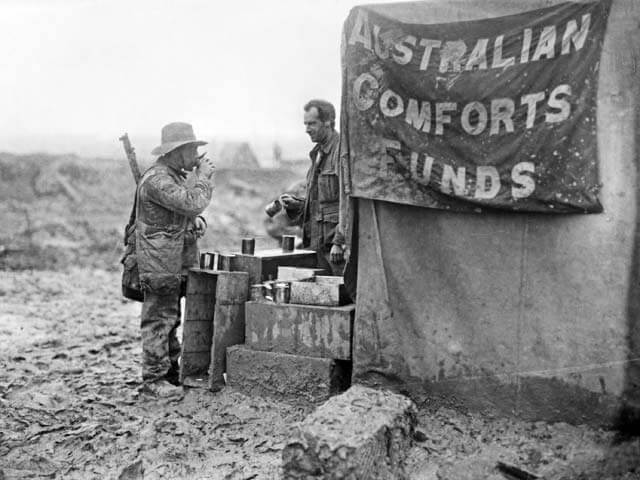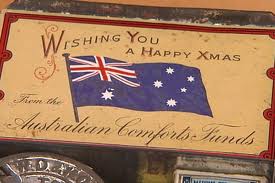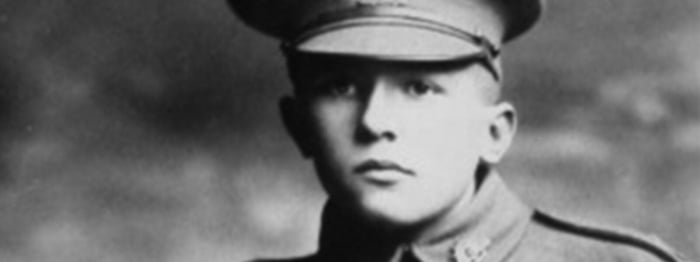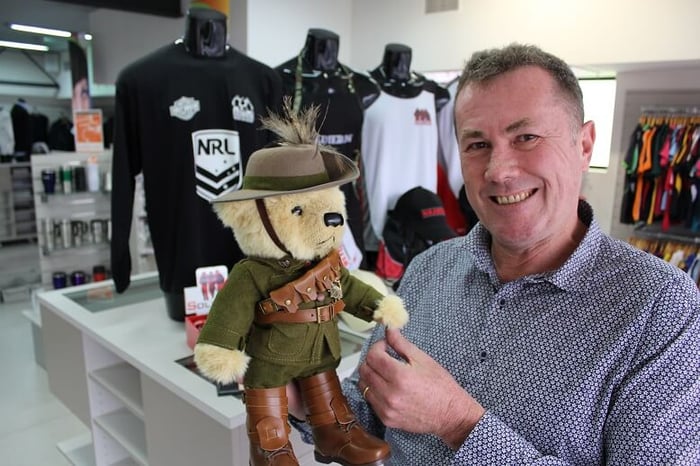
Wrap round an elephant twice and a half.
Image: Australian soldiers on the Western Front visit an ACF stall.
“L is for the lady who made me a scarf that would wrap round an elephant twice and a half.” The Great War trenches of France and Belgium ran 760 km from the North Sea to Switzerland. From 1916 -1918 our Diggers were under attack, exposed to the elements and faced with severe health risks and mortal peril.
 ACF tin sent to soldiers on the front
ACF tin sent to soldiers on the front
to help the men celebrate Christmas.
The weather on the Western Front was a big factor. The French winter of 1916 was among the most severe in northern France since 1880. Australian trenches were often waterlogged, muddy and plagued by mice and rats. Little wonder Diggers came down with trench foot and other diseases.
Trench foot was a painful condition caused by exposure to cold and damp for long periods. Soldiers’ feet swelled up and became infected, and when left untreated trench foot could turn to gangrene, and lead to amputation. Back home, organisations like the Australian Comforts Fund tried to make things a little easier for the men in the trenches.
With branches throughout country the Australian Comforts Fund claimed it had the lowest running costs of any patriotic association supporting the diggers overseas. All but one penny out of every pound reached the men and all comforts were provided free.
In Busselton, Western Australia, the local branch of the Fund gave £10 towards a frontline coffee stall and mailed 72 Christmas boxes overseas. In 1918, the town’s Fund also sent off 79 shirts, 340 pairs of socks, 14 scarves, 34 caps and over 1300 handkerchiefs.
Sometimes, however, the well-intentioned efforts of novice knitters resulted in less than perfect results. In a publication called ‘Alphabet of the War’ composed by a soldier on the front line, the letter ‘L’ read as follows: “L is the lady who made me a scarf that would wrap round an elephant twice and a half.”
Throughout the war Diggers were grateful for these home front efforts. The Kyneton Guardian in June 1918 published a letter from Captain Bruce who praised the Australian Comforts Fund. “Soldiers spent most of their time in the trenches, being extraordinarily frightened and the whole of their time being extraordinarily bored. Everything that aimed at alleviating those conditions could not be over praised.”
The Australian Comforts fund was one of the largest voluntary organisations in Australian history. It stands as a testament to the determination and service of Australian women holding the home front. The fund was later revived for the Second World War.










